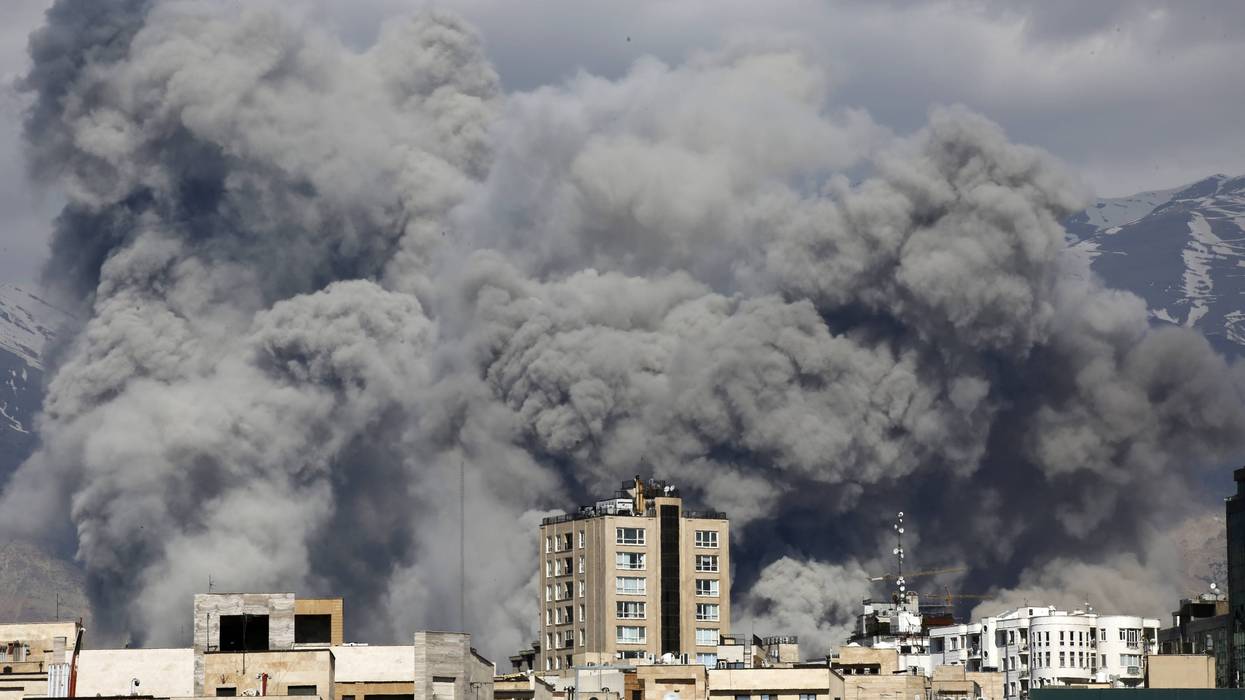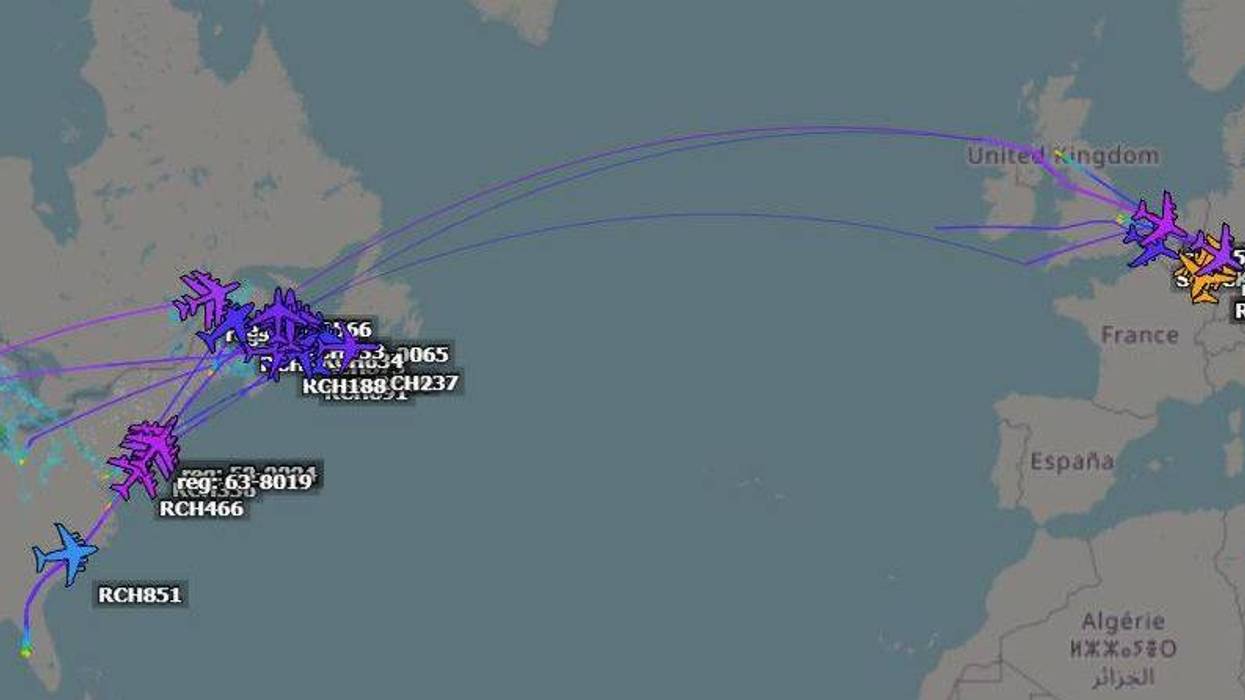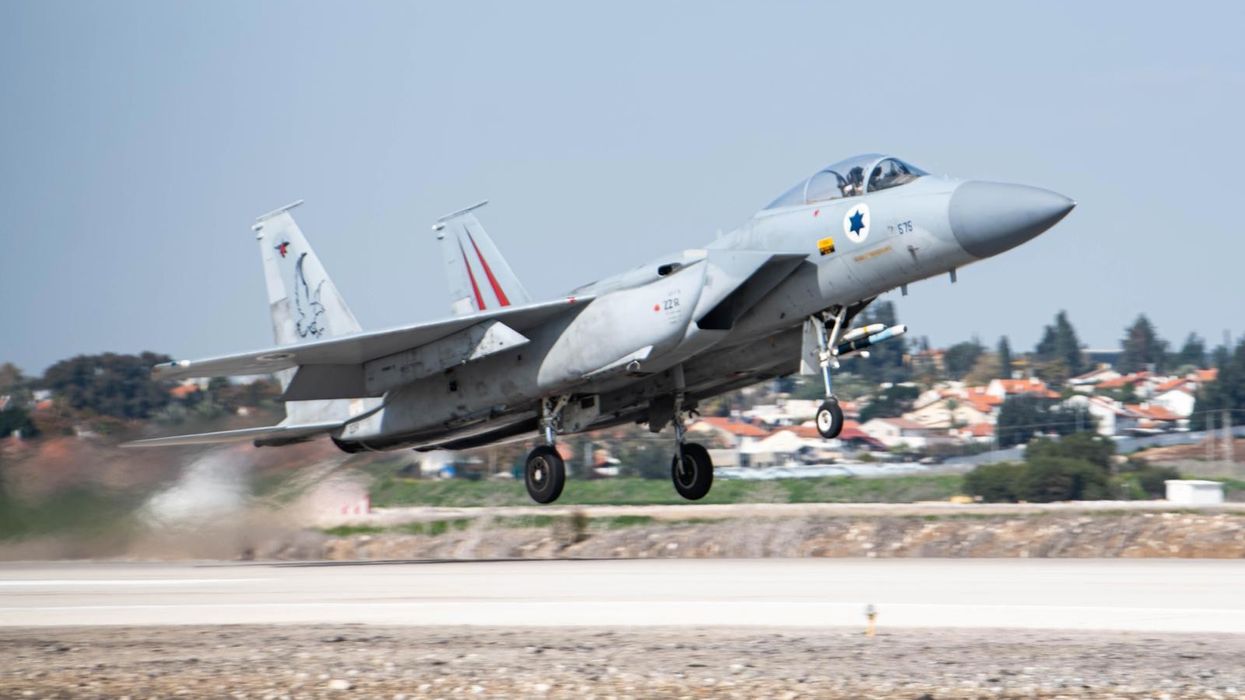US, Israel 'Going Gaza on Iran' as Death Toll Tops 500 Amid New Massacres
"This is carpet-bombing, which has struck everything from playgrounds, to an emergency services HQ, schools, media buildings, and medical facilities," said one observer.
US and Israeli forces were accused Monday of "seemingly indiscriminate" bombing of Iran as the country's Red Crescent said that at least 555 people have been killed amid reports of fresh mass casualty attacks across the country.
The Iranian Red Crescent Society said at least 555 people have been killed so far during three days of a US and Israeli war of choice aimed at toppling Iran's long-ruling Islamist government. US Secretary of State Marco Rubio on Monday continued to insist that the war is not about regime change, but rather enduring yet bogus claims that Iran is close to developing nuclear weapons.
Those killed include many civilians as well as former Iranian Supreme Leader Ayatollah Ali Hosseini Khamenei and dozens of senior government and military officials. Iranian counterattacks have killed half a dozen US troops, 9 Israelis, and a handful of people in Gulf nations allied with the United States.
An attack on the Abbasabad Police Station—where anti-government protesters were allegedly tortured during the recent deadly crackdown—in Niloofar Square in central Tehran killed at least 20 people, local media reported.
"This is carpet-bombing, which has struck everything from playgrounds, to an emergency services HQ, schools, media buildings, and medical facilities," documentary filmmaker Robert Inlakesh said in a social media post showing the aftermath of the strike.
Local residents said that the site was attacked for the second time in three days. This was part of broader US-Israeli strikes on Tehran, including attacks on the Revolutionary Court, Defense Ministry, other government sites, and civilian infrastructure including at least eight medical facilities and state media outlets.
Carpet bombing in Iran is stark reminder of how air superiority shapes modern warfare. In May 2025, Pakistan faced similar escalation from India—yet credible air defense and a combat-ready air force altered strategic calculus decisively.
Invest in air power, instead of proxies! pic.twitter.com/H3rx2tYS7T
— Sarah Khan (@sarahkhanjourno) March 2, 2026
Video footage of another attack on central Tehran—this one in Ferdowsi Square—showed devastation from what political analyst Trita Parsi called "seemingly indiscriminate" bombing.
"Increasingly, Israel and the US appear to be following the Gaza playbook, having failed to achieve a quick regime implosion," Parsi said on social media.
Parsi also shared video of a distraught woman who described an apparent so-called "double-tap" strike, a common tactic used by the US, Israel, and other militaries in which an initial bombing is followed up with a second one in a bid to kill and injure survivors and first responders.
"They killed everyone," the woman said of the attackers. "They dropped the first bomb, then when people went to help, they dropped another bomb."
Local and international media reported at least 35 people killed in multiple attacks on targets in the southern Fars province, which neighbors Hormozgan province, where the deadliest massacre of the young war took place on Saturday. Officials said at least 175 people—mostly children—were killed in a strike on the Shajareh Tayyebeh girls' elementary school in Minab.
Several hours later, a missile strike on a gymnasium in Lamerd, Pars province, where dozens of teenage girls were playing sports reportedly killed at least 18 people.
"Like the destruction of the school in Minab, basic protections to safeguard the lives of civilians in war either failed or were disregarded, leading to catastrophic loss among Iran’s civilian population," the National Iranian American Council said in a statement Monday.
Iranian Red Crescent chief Pirhossein Kolivand said in a video posted on social media Sunday that “the Minab school incident has no comparison with any other incident, even in Gaza."
Comparisons with Gaza—where Israel's genocidal assault has left more than 250,000 Palestinians dead, maimed, or missing since October 2023 and the coastal strip in ruins—have been numerous.
Condemning what it called the "barbarous" and "treacherous" US-Israeli attacks on Iran, Hezbollah, the Lebanon-based resistance group targeted by Israel during the Gaza war, said, “This aggression confirms the full and direct partnership between America and Israel in planning and execution, not only in the war against the Islamic Republic, but also in all the wars and crimes the region is facing, in Gaza, Lebanon, Syria, and Yemen.”
Ori Goldberg, an Israeli political analyst, said that, in Israeli society, "there’s a sense of triumphalism, of having attacked an enemy regime."
"Not really because we’re greatly invested in the future of the Iranian people, but because, through the genocide on Gaza, we’ve devalued human life,” he added.
Parsi said that "Israel appears to be going Gaza on Iran."
The renewed US and Israeli attacks on Iran follow last year's limited war on the country that left thousands of Iranians dead or wounded, including at least 436 civilians killed and over 2,000 others injured, according to officials and activists.
United Nations officials and international human rights defenders were also among those condemning the US-Israeli war of choice.
Addressing the Minab school strike, UNESCO—the UN's educational, scientific, and cultural agency—said that "the killing of pupils in a place dedicated to learning constitutes a grave violation of the protection afforded to schools under international humanitarian law."
UN Messenger of Peace and Nobel Peace laureate Malala Yousafzai asserted that “all states and parties must uphold their obligations under international law to protect civilians and safeguard schools," adding that "every child deserves to live and learn in peace.”
In the United States—where Democratic and a handful of Republican lawmakers are reportedly drafting a war powers resolution in a bid to rein in President Donald Trump's aggression—Rep. Rashida Tlaib (D-Mich.) took to social media to note the "over 555 Iranians already killed by US-Israeli bombs, including at least 165 at a girls' elementary school."
"At least four US service members are dead," she also wrote, before that figure rose to six. "Any member of Congress who votes against the war powers resolution is voting for more of this."
The Not Above the Law coalition was among the civil society groups urging Congress to pass an Iran war powers resolution.
“President Trump has launched deadly military strikes against Iran without congressional approval, in flagrant violation of the Constitution," the coalition's co-chairs said Monday. "Article I, Section 8 is crystal clear: Only Congress can declare war. Yet Trump has secured neither a declaration of war nor congressional authorization for military force."
"Trump’s reckless unilateral action puts American lives and global security at risk while trampling the foundational principle that no president is above the law," Not Above the Law added. “Congress must act immediately. Pass war powers resolutions to reject this unconstitutional power grab and reassert its authority over matters of war and peace. The rule of law demands it."


